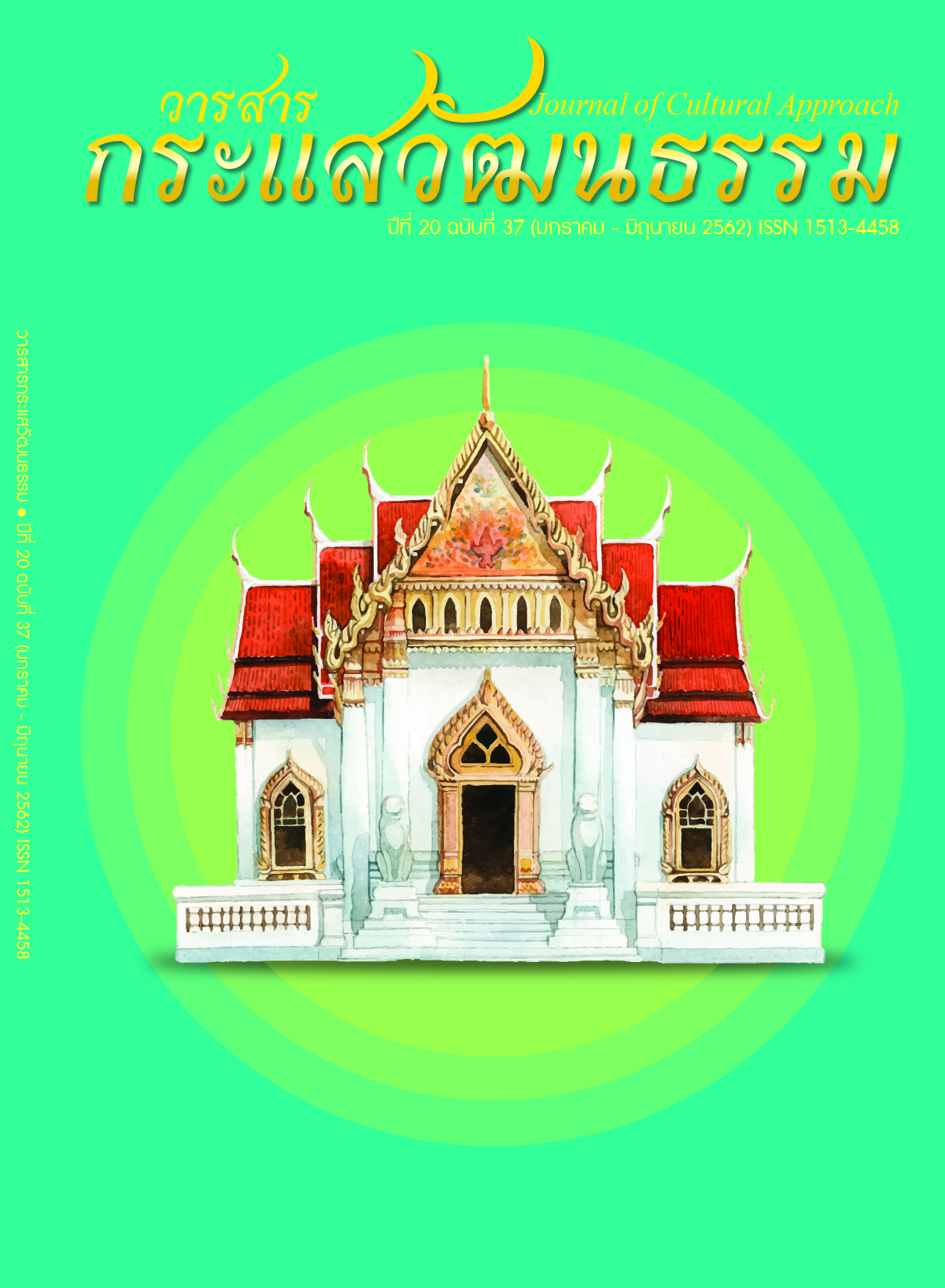The Study on Folk Medicine Knowledge in Menopausal Syndrome Treatment Chantaburi Province
Main Article Content
Abstract
The purpose of this research was to study the history and knowledge of folk The purpose of this research was to study the history and knowledge of folk medicine and to study the healing process with folk medicine knowledge, to qualitative research methodology, to collect fieldwork data and to descriptive analysis. The research found that the history of folk medicine knowledge has been for thousands of years, according to the Buddhist way of thinking that the illness is caused by soil, water, wind, fire within the body to unbalance, In terms of the folk medicine knowledge. It was found that the symptoms occurred when the women were 40–50 years old. Symptoms of sweating, insomnia, irritability, and exhaustion until they are treated, folk medicine the age of 60–91 years old has the essential qualities of being a moral principle, in the treatment process, a physical examination of the patient, a physical examination by pulse, and a calculation of the data of birth. Diagnosis in the collection of medical expenses from patients, the folk medicine will not charge money for treatment, the patient will give money by faith. The time of treatment if the initial illness is improved within 3 days, but need to continue taking the drug for to 1–2 months and follow the results of the treatment 3 times a week. In the case of heavy–duty patients, continuous treatment and cure within 2–3 months. This research resulted in extensive local herbal conservation
Article Details
Proposed Creative Commons Copyright Notices
1. Proposed Policy for Journals That Offer Open Access
Authors who publish with this journal agree to the following terms:
- Authors retain copyright and grant the journal right of first publication with the work simultaneously licensed under a Creative Commons Attribution License that allows others to share the work with an acknowledgement of the work's authorship and initial publication in this journal.
- Authors are able to enter into separate, additional contractual arrangements for the non-exclusive distribution of the journal's published version of the work (e.g., post it to an institutional repository or publish it in a book), with an acknowledgement of its initial publication in this journal.
- Authors are permitted and encouraged to post their work online (e.g., in institutional repositories or on their website) prior to and during the submission process, as it can lead to productive exchanges, as well as earlier and greater citation of published work (See The Effect of Open Access).
Proposed Policy for Journals That Offer Delayed Open Access
Authors who publish with this journal agree to the following terms:
- Authors retain copyright and grant the journal right of first publication, with the work [SPECIFY PERIOD OF TIME] after publication simultaneously licensed under a Creative Commons Attribution License that allows others to share the work with an acknowledgement of the work's authorship and initial publication in this journal.
- Authors are able to enter into separate, additional contractual arrangements for the non-exclusive distribution of the journal's published version of the work (e.g., post it to an institutional repository or publish it in a book), with an acknowledgement of its initial publication in this journal.
- Authors are permitted and encouraged to post their work online (e.g., in institutional repositories or on their website) prior to and during the submission process, as it can lead to productive exchanges, as well as earlier and greater citation of published work (See The Effect of Open Access).
References
[2] Department for Health Services, Ministry of Public Health. (2010). Integrated Health Care for the Elderly (Revised Edition). 2nd ed. Nonthaburi: Company Sirichai Printing. (in Thai)
[3] Foundation of Thai Traditional Medicine. (2007). Thai Traditional Medicine Texts Volume 1. Bangkok: Supawanich Printing, (in Thai)
[4] Juingsatiensap, Komart. (2004). Direction and Strategy Creating Knowledge Management Thai Traditional Medicine Folk Medicine and Alternative Medicine. Bangkok: Ausa Printing. (in Thai)
[5] Sirayapiwat, Porntip. (2008). Reproductive Medicine. Bangkok: Company Conceptmadicus. (in Thai)
[6] Sornlum, Promjit. (1990). Encyclopedia of Herbs Volume 1 “Herbal Garden Suiargan”. Bangkok: Department of Pharmacology, Faculty of Pharmacy. Mahidol University. (in Thai)
[7] Swaddichai, Chatchai. (2016). Project of the Activity Movement Thai Traditional Medicine in Out Patient Department (OPD). Sabai Hotel Nakhon Ratchasima, June 13. (in Thai)
[8] Thanua, Wanlop. (2001). Male and Female Health. Bangkok: Publisher Chaufang. (in Thai)

